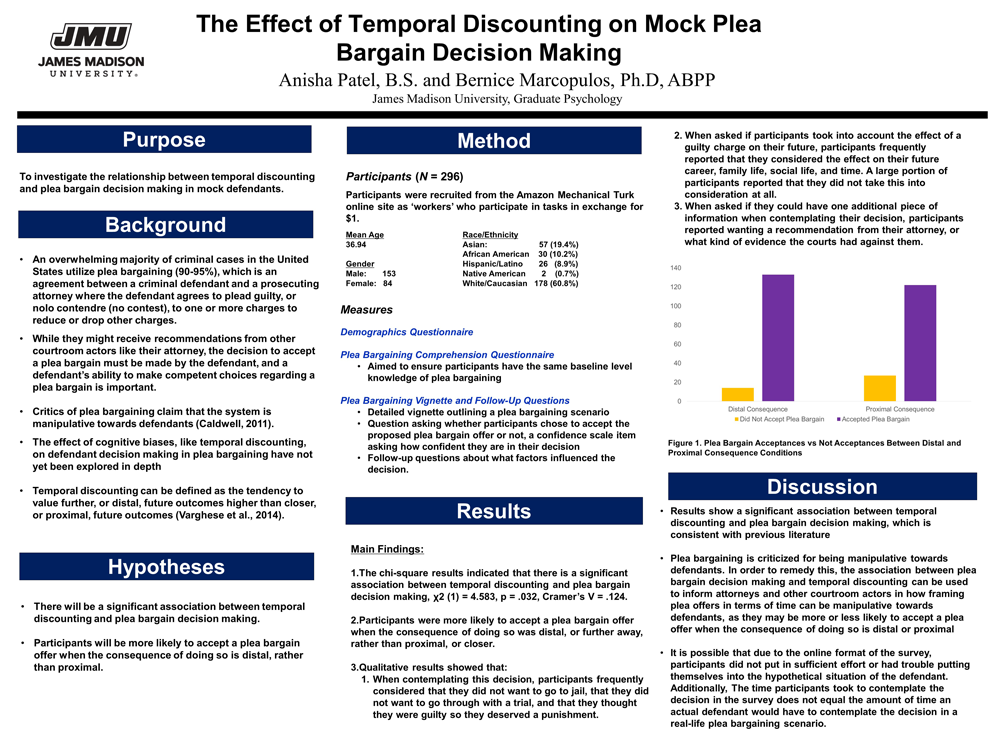The Effect of Temporal Discounting on Mock Plea Bargain Decision Making
Psychological Sciences
An overwhelming majority of criminal cases in the United States utilize plea bargaining (90-95%). A plea bargain, sometimes referred to as a plea agreement or plea deal, is an agreement between a criminal defendant and a prosecuting attorney where the defendant agrees to plead guilty, or nolo contendre (no contest), to one or more charges to reduce or drop other charges. The decision to accept a plea bargain must be made by the defendant, and therefore a defendant’s ability to make or communicate competent choices regarding a plea bargain is important. However, defendant decision-making in plea bargaining is not sufficiently prevalent in plea bargaining or decision-making literature. While a few factors such as strength of evidence and attorney recommendation have been explored in defendant plea bargain decision-making, the same cannot be said of several cognitive biases that have been shown to effect decision-making in defendants. The current study is exploring the role of one such bias, temporal discounting, on defendant decision-making in plea bargaining. Temporal discounting can be defined as the tendency for the value of future outcomes to be lower for closer outcomes than for further ones. Participants in the study were be presented with a vignette that details a plea bargaining scenario and manipulated temporal discounting by changing the interval of time between sentencing and the potential punishment, and then were asked whether or not they would accept the plea bargain. It was found that there is a significant association between temporal discounting and decision making, and these findings can be used to inform various actors within the criminal justice system on how to frame plea offers in order to not be manipulative towards defendants.

